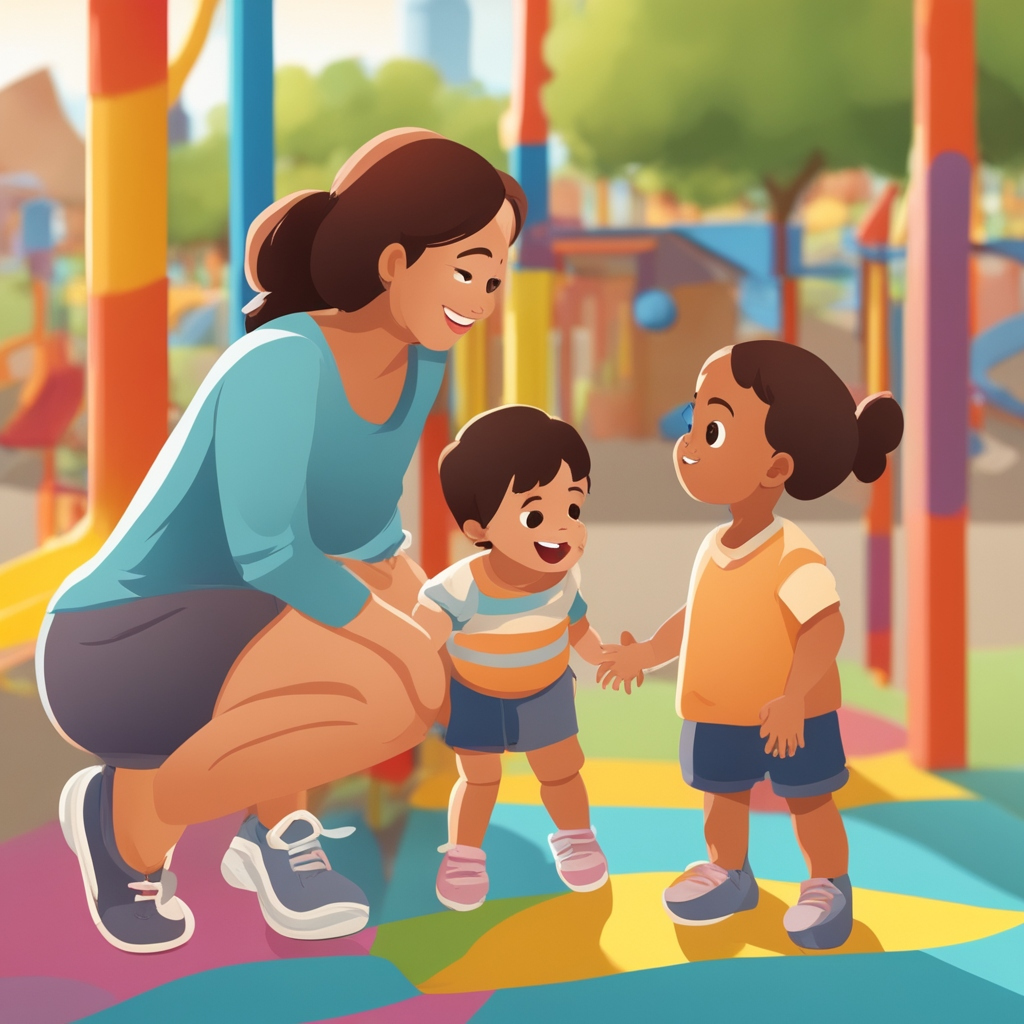It’s not uncommon for toddlers to show reluctance when it comes to interacting with others. As they develop their social skills, some children might prefer sticking to the familiar comfort of their family rather than engaging with peers or unfamiliar adults. This can be a natural phase in their development, but it’s important to understand how to support them in overcoming this reluctance to nurture their social growth effectively.
Understanding Toddler Reluctance
Children between the ages of 1 and 3 are experiencing enormous growth and change. They’ve recently mastered walking, their vocabularies are expanding rapidly, and they’re beginning to understand their emotions on a deeper level. This stage of childhood can be overwhelming, and navigating the social nuances of interacting with others can just add to this complexity.
Some children are naturally more introverted and may need more time to warm up to new people or crowds. Others could be experiencing a mix of separation anxiety, stranger anxiety, or simply a lack of exposure to social environments. Understanding these underlying causes is the first step towards handling their reluctance.
Identifying the Causes
– **Temperament**: Some children are naturally shy or introverted; they may shy away from social interactions as part of their personality.
– **Past Experiences**: A negative experience with other children or adults can cause toddlers to be wary in similar situations.
– **Environmental Changes**: Moving to a new house or starting a new daycare can temporarily cause a child to be more reserved.
– **Developmental Stages**: As toddlers explore their independence, they may display reluctance due to a desire to exert control over their social environment.

Strategies for Encouraging Social Interaction
Foster a Sense of Security
Children are more likely to interact with others when they feel secure and confident. Provide lots of love and reassurance before and during social gatherings. Creating a predictable routine can also help them feel safe as they start to branch out socially.
Lead by Example
Children learn a great deal by observing adult behavior. Demonstrate positive social interactions by greeting others warmly, participating in conversations, and showing kindness. Toddlers will begin to understand these social cues and feel more comfortable replicating them.
Introduce Social Settings Gradually
Sudden changes can be overwhelming. Gradually introduce your child to social settings, starting with smaller gatherings or playdates with one or two other children. As their confidence builds, you can gradually increase the size of these social setups.
Encourage Play-Based Interactions
Toddlers learn about socialization through play. Encourage activities that require interaction, such as building blocks, role play, or cooperative games. Play settings allow children to explore social norms in a relaxed and enjoyable environment.
Handling Resistance without Pressure
Be Patient
While parents can gently encourage social interaction, it’s crucial not to force it. Pressuring a child who is reluctant can increase their anxiety and resistance. Instead, remain patient and offer gentle encouragement.
Model Empathy
Acknowledging your child’s feelings can foster a supportive environment. For example, saying something like “I see you’re feeling shy about playing with other kids. That’s okay. I’ll be right here if you need me” validates their emotions while providing reassurance.
Positive Reinforcement
Celebrate and praise small steps towards social interaction. Whether it’s sharing a toy or saying hello to a new friend, acknowledging these efforts can boost their confidence.
When to Seek Professional Help
While being socially reserved can be a normal part of a child’s development, there are instances where professional advice might be appropriate. If your child’s reluctance to interact with others is severe, resulting in noticeable distress, or if it inhibits day-to-day functioning, speaking to a pediatrician or child psychologist might be beneficial.
Listen to Your Instincts
As a parent, you know your child better than anyone. If you suspect their reluctance is more than typical shyness, trust your instincts and seek guidance.
The Importance of Social Skills
Social skills are crucial for a child’s development, impacting emotional intelligence, communication abilities, and forming relationships. Encouraging positive interactions during early childhood can lay the foundation for successful interpersonal relationships in adulthood.
Fostering a supportive environment, leading by example, and encouraging gradual interaction can help children naturally develop these skills. Remember that every child is unique; their pacing in developing social skills will vary, and that’s entirely normal.
In conclusion, nurturing a child’s social development is a journey involving patience, empathy, and encouragement. By addressing their reluctance thoughtfully, parents can support their toddlers in building the confidence they need to engage with the world around them successfully.